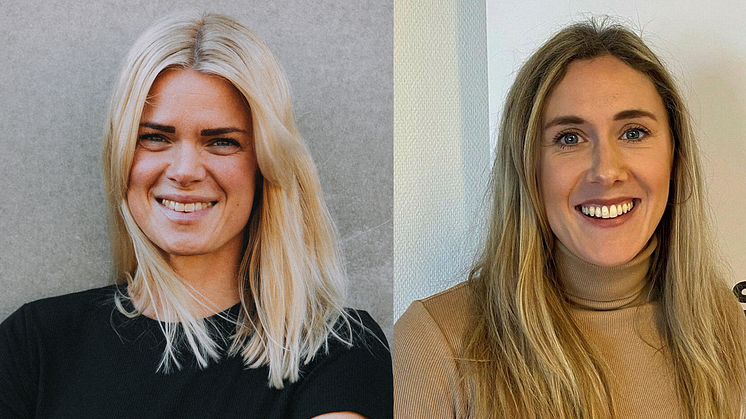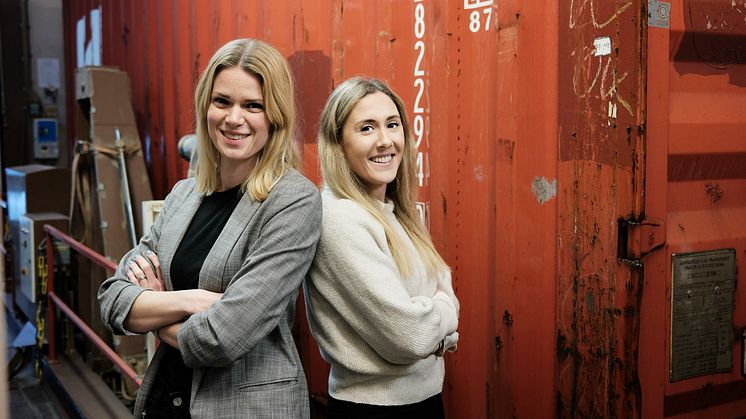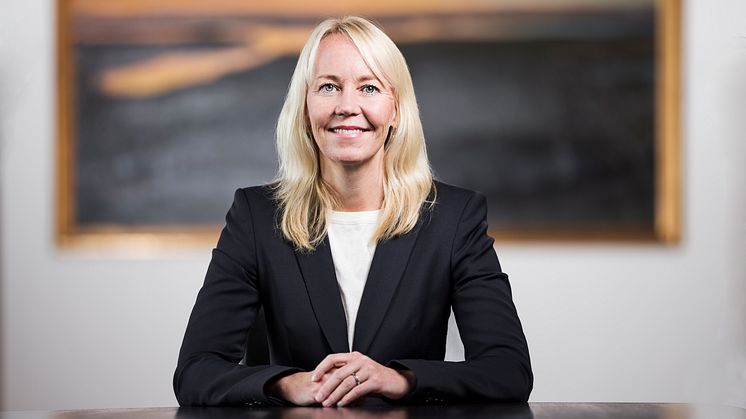
Blog post -
Fossil-free maritime freight – a low-hanging fruit more should pick
Maritime freight is a smart alternative to air freight from a climate perspective, but often goes under the radar when companies map their Scope 3 emissions. The companies’ purchased goods often generate the most emissions, while the emissions of the freight, for example per kilo coffee, are proportionately low. But it is still good and important that there now are solutions to make maritime freights fossil-free. It is smart to pick a low-hanging fruit first.
To identify your emissions, set up climate targets, and plan to reduce the emissions are a hygiene factor for large companies. The focus is often on direct and indirect emissions in the company’s own operations (Scope 1 and 2), despite the fact that the greatest emissions often occur in Scope 3. Like emissions from transports. Companies can have a strong sustainability profile and make great investments to reduce their emissions, but choose to not prioritise the emissions from transports with the explanation that they represent a small share of the total emissions of the company. As Heads of Sustainability, we have a hard time understanding the reasoning. Every less ton of carbon dioxide is a win for the planet and for coming generations, and we cannot choose to not prioritise emission reductions that are cost-efficient and available this very day.
When Scanlog decided to become a sustainable company working with logistics, instead of a logistics company working with sustainability, the efforts of developing a product for fossil-free maritime freights began. Together with its partner STX, Scanlog can now deliver a unique solution that is independent of shipping companies. A solution that reduces the emissions with 100% by purchasing liquefied biogas (LBG), which is bunkered onto ships in Northern Europe in accordance with the mass balance principle.
The coffee roaster Löfbergs has always focused on responsibility and cooperation, and has been first on the market with new solutions many times. When Scanlog presented its ground-breaking solution independent of shipping companies for Löfbergs, the decision-making process was rapid, and as of 1 January 2024, Löfbergs purchases fossil-free maritime freight from Scanlog for all transports of green coffee from the producing country to Sweden, which reduces the Co2e emissions from these transports with 100%. The greatest climate impact in Löfbergs’s value chain occurs when the coffee is farmed, and this is where the company are making great efforts. But in our strive to reduce the climate emissions in the entire value chain, there are many rocks to turn, and fossil-free maritime freight is one important step.
The transition is too slow, and someone needs to have the guts to be first for others to follow. It is the only way to increase the production, because who wants to produce biofuel if no one wants to purchase it?
Transports represent a whooping 14% of the greenhouse gas emissions of the world. And there are fossil-free solutions, but they need to be scaled up. To increase the production of biofuel, we have to increase the consumption and be ready to pay more than for fossil fuels. An increased willingness to pay could finance the fuel switching, and everyone in the logistics chain has a responsibility here. Löfbergs is now reducing 100% of the CO2e emissions from its transports of green coffee, which corresponds to about 1,800 tons of CO2. It is a relatively large investment, but not if you spread the costs per coffee pack.
The transition is in full swing, and we see many forces going in the right direction, not least from the EU and the directives of Fit for 55. But we also know that we must pick up the speed to meet the 1.5-degree target. We need to be tough, brave, and an inspiration to each other. The market needs suppliers that can offer fossil-free solutions and customers who are willing to pay for them. We become braver, more profitable, and we reach a lot farther when we unite. We want to show that one of the solutions is already here. It is practical and economically feasible, and it contributes to a reduced climate impact in a cost-efficient way. We are ready and we have taken the leap. Do you want to join us?
Kajsa-Lisa Ljudén, Head of Sustainability, Löfbergs
Matilda Jarbin, Head of Sustainability & Communications, Scanlog
***
Facts
Fossil-free maritime freight in this article refers to the reduction of greenhouse gas emissions through verified Maritime Carbon Insets with full additionality and traceability. Maritime Carbon Insets refer to the unique ownership rights to claims of a verified indirect emission reduction within the maritime value chain through the Book & Claim mechanism, generated, transferred, and used in accordance with the methodology for the transport sector specified by the Smart Freight Centre (SFC).
The emission reduction occurs when Scanlog via its partner STX bunkers LBG onto ships in Europe according to the mass balance principle, where ownership of the emission reductions in Scope 3 is attributed to Scanlog’s customers via Scanlog. LBG is the biofuel with the highest emission reduction compared to fossil fuels with a negative carbon intensity (CI) value (-99.75g CO2/MJ). Scanlog purchases LBG that is produced from manure from Europe.
- The reduction in Scope 3 is verified by an independent verification institute after inspection.
- The biogas (liquefied biogas) is certified in the EU in accordance with ISCC (International Sustainability Carbon Certification.
- Maritime Carbon Insets are verified by independent verification institutes in accordance with ISO 14083:2023
- The traceability of the insets is verified in accordance with ISO 22095:2020 (Book and Claim)



